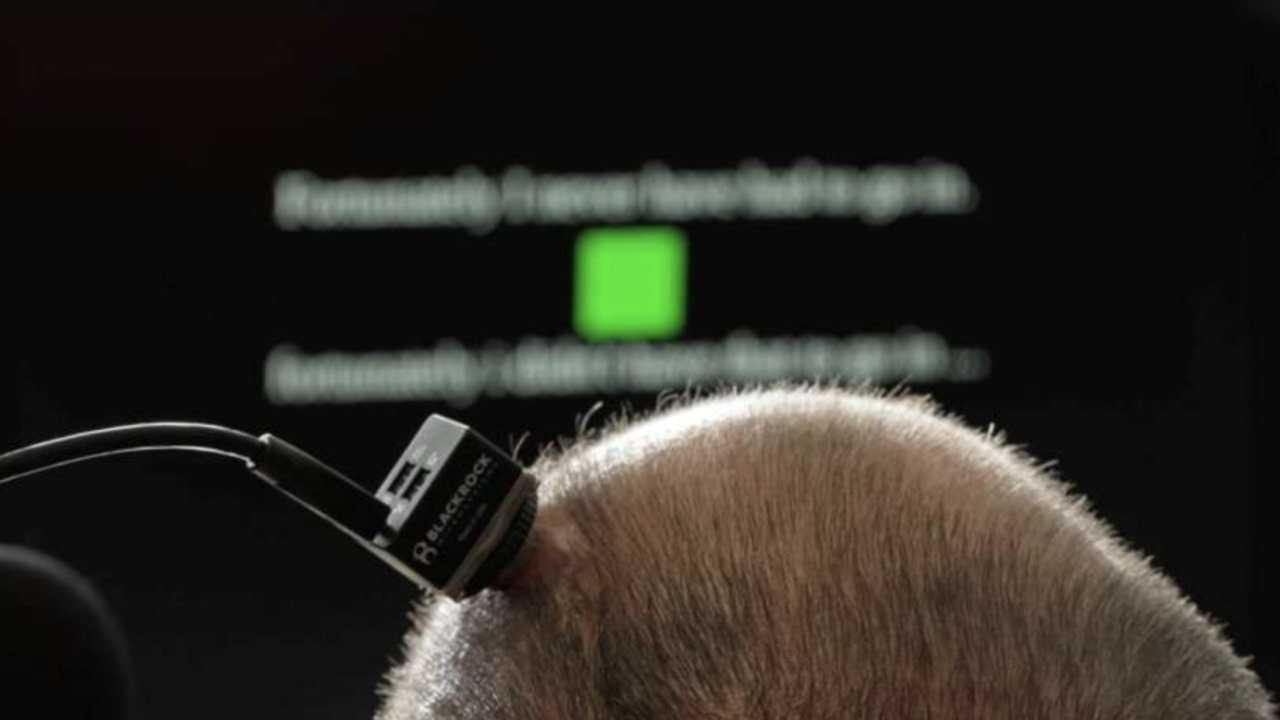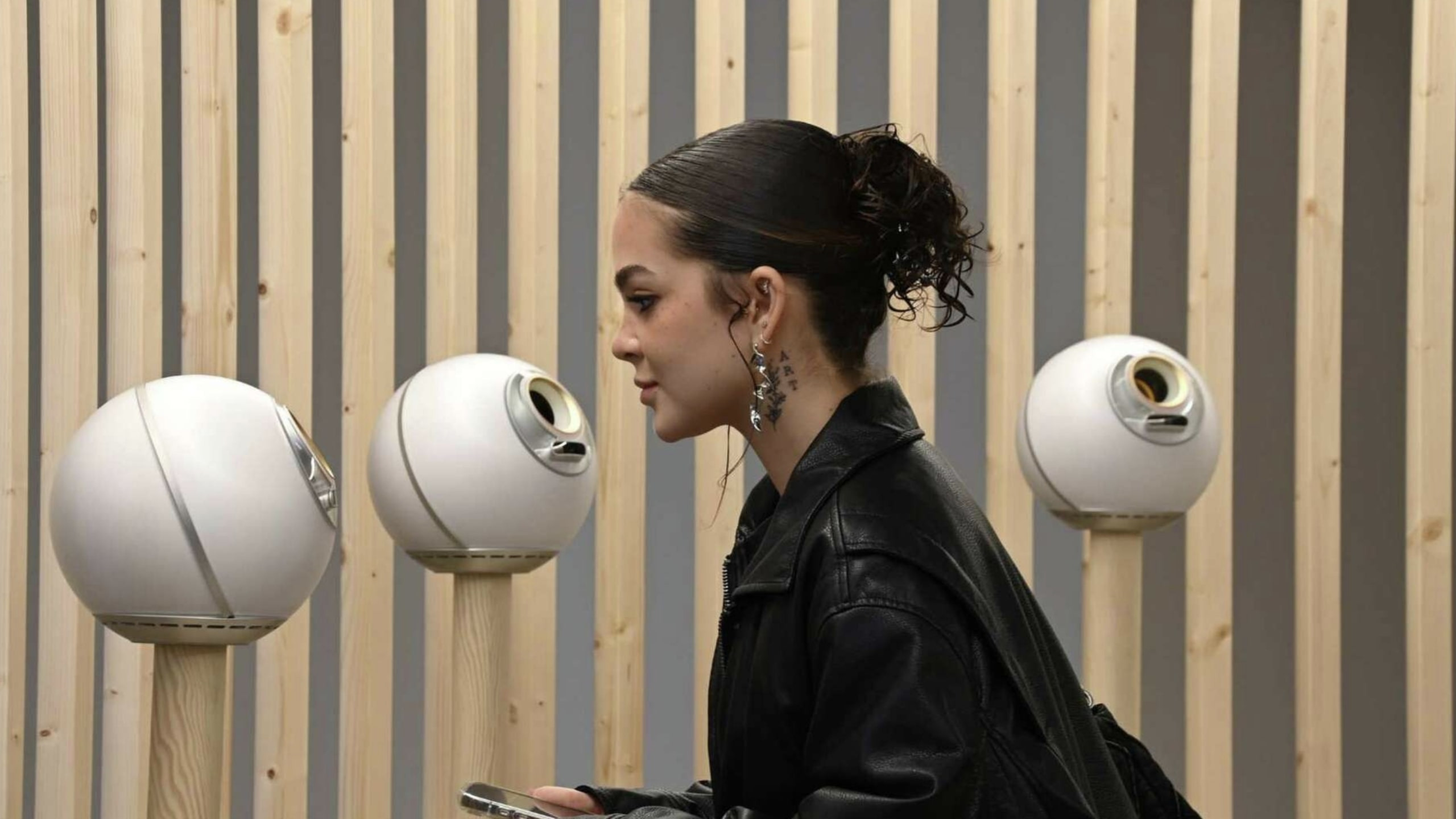Researchers achieve a brain implant milestone

Image: UC Davis Health
As humanity gives robots voices, they appear to be doing the same for us.
For the first time, a brain implant has allowed a patient with a severe speech disability to speak expressively in real-time and even sing, effectively creating a new digital vocal tract, according to a study published yesterday in the journal Nature.
The new technology, designed by UC Davis researchers, uses a specially designed AI algorithm to instantaneously translate the patient’s brain activity into speech.
“The holy grail in speech BCIs”
Previous speech brain-computer implants (BCIs) have focused on translating brain waves into written words—a situation scientists liken to texting, given the delayed nature of conversation.
- By comparison, UC Davis’ new tech is more like a voice call (near-instantaneous communication), which is the end goal for many speech BCI projects.
- It’s also the first known BCI to reproduce not only a person’s intended words, but also features of natural speech like tone, pitch, and emphasis, which help to express meaning and emotion.
It’s been a breakthrough week: In a separate Nature Communications study published Tuesday, researchers uncovered key details about the complex process that grants axolotls, a species of aquatic salamander, the unique ability to regrow its limbs—with the goal of one day allowing humans to do the same (like Deadpool, but without the required torture to activate).
Share this!
Recent Science & Emerging Tech stories

Science & Emerging Tech
| June 12, 2025Sam Altman’s eyeball-scanning startup launches in the UK
👁️ Sam Altman wants to gaze deeply into your eyes: World (formerly Worldcoin), an ID verification project from Altman that aims to scan the eyeballs of every human on Earth, went live in the UK this morning amid an ongoing global expansion.

Science & Emerging Tech
| June 9, 2025Inside OpenAI’s push to send ChatGPT to college
🤖🏫 OpenAI is increasingly approaching universities with the goal of securing deals that embed its AI tools in every facet of campus life, according to a new NY Times report.

Science & Emerging Tech
| June 9, 2025The workout + cold plunge combo doesn’t actually help gains, per new research
🧊💪 If you’re looking to build muscle, frigid baths immediately after a workout just ain’t it, according to a study recently published in the journal Medicine & Science in Sports and & Exercise.
You've made it this far...
Let's make our relationship official, no 💍 or elaborate proposal required. Learn and stay entertained, for free.👇
All of our news is 100% free and you can unsubscribe anytime; the quiz takes ~10 seconds to complete